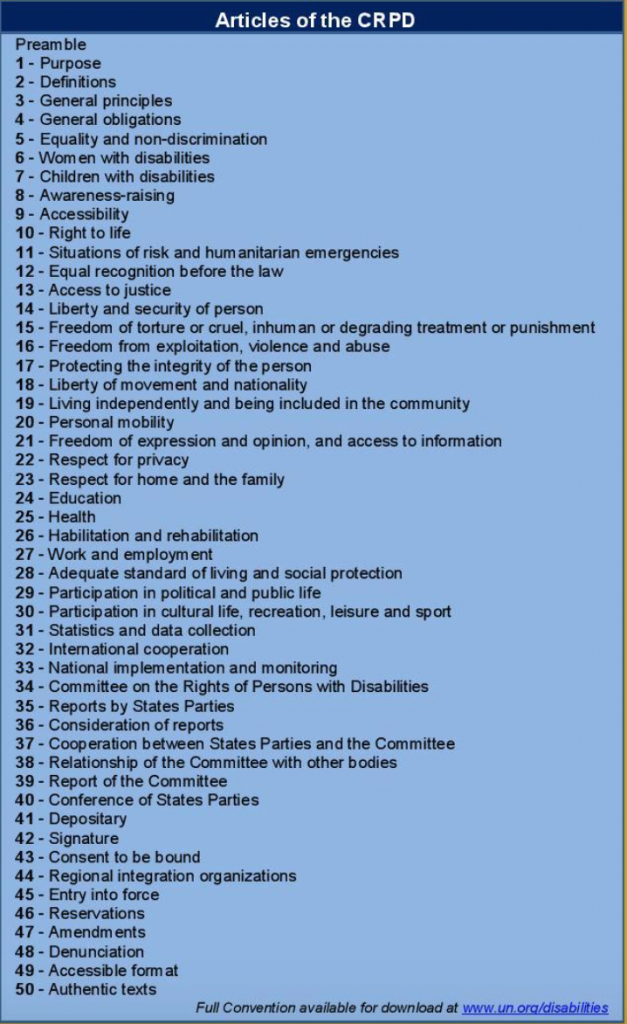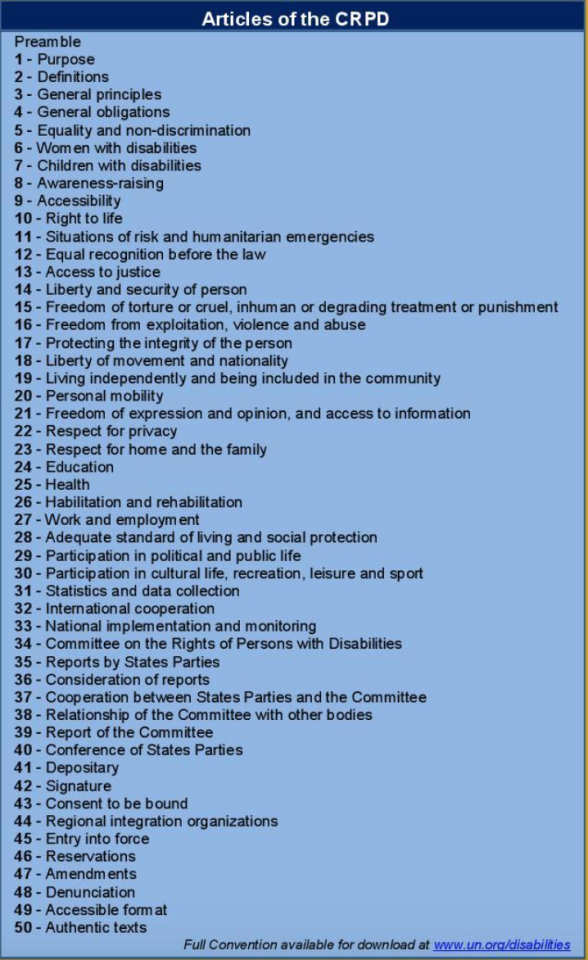 This week our blog is focusing on The United Nations Convention of the Rights of Persons with Disabilities (CRPD). Many people are currently wondering why some people with dementia, and DAI is so active in this area, and why we would want another seemingly negative 'label'.
This week our blog is focusing on The United Nations Convention of the Rights of Persons with Disabilities (CRPD). Many people are currently wondering why some people with dementia, and DAI is so active in this area, and why we would want another seemingly negative 'label'.
Put simply, if we lost our legs in an accident, or had a stroke, we would expect to be supported to continue to live as independently as possible, for as long as possible, with access to things such as this wheelchair. In fact, I feel sure we would consider this our basic human right.
In fact, Article 26 of the CRPD clearly states we have a right to Habilitation and Rehabilitation.
The symptoms of dementia in the earlier phases of the disease, cause us various disabilities, that we know will progress as the dementia progresses. That does not mean we should be told to go home and get our end of life affairs in order and prepare for aged care. Instead, we should be supported to reinvest in life, with the support for our disabilities as required. It does not mean we are end stage upon diagnosis, with no chance of a good life for at least some time in our futures.
United Nations Enable is the website that supports all the information in the public domain about the Convention of the Rights of Persons with Disabilities (CRPD), and it says;
"The CRPD and its Optional Protocol (A/RES/61/106) was adopted on 13 December 2006 at the United Nations Headquarters in New York, and was opened for signature on 30 March 2007. There were 82 signatories to the Convention, 44 signatories to the Optional Protocol, and 1 ratification of the Convention. This is the highest number of signatories in history to a UN Convention on its opening day.
It is the first comprehensive human rights treaty of the 21st century and is the first human rights convention to be open for signature by regional integration organizations. The Convention entered into force on 3 May 2008.
The Convention follows decades of work by the United Nations to change attitudes and approaches to persons with disabilities.
It takes to a new height the movement from viewing persons with disabilities as "objects" of charity, medical treatment and social protection towards viewing persons with disabilities as "subjects" with rights, who are capable of claiming those rights and making decisions for their lives based on their free and informed consent as well as being active members of society. "
It is intended as a human rights instrument with an explicit, social development dimension. It adopts a broad categorization of persons with disabilities and reaffirms that all persons with all types of disabilities must enjoy all human rights and fundamental freedoms.
The CRPD clarifies and qualifies how all categories of rights apply to persons with disabilities and identifies areas where adaptations have to be made for persons with disabilities to effectively exercise their rights, in areas where their rights have been violated, and where protection of rights must be reinforced.
Being labelled as disabled?
Not only people without a diagnosis of dementia, but also many people with dementia question why we as a community should be working so hard to ensure our rights are not only recognised under the CRPD, but that we have full access to the disability support every other person living with disabilities receives.
Therefore, Disability Rights for people with dementia are essential for us to progress with full Citizenship and opportunities to live, not only die from dementia.
Why would we want another label?
After all, we already have to live with the label of dementia.
We have to live with the continuing stigma of dementia, including the passive stigma, and the isolation, the discrimination and the myths and misperceptions of others. We suffer some of the time from dementia as well as many other things, but we are still faced with almost daily disrespect of being collectively labelled 'dementia sufferers'.
As we achieve full access to the CRPD, it will start to make a difference to the lived experience of dementia.
This chart below, with the list of Articles very simply shows why it really is an important step forward for people with dementia to accept not only what feels like a negative label (disabled), but to claim our rights under the CRPD.
The reality is that once we do, legislation will ultimately fully ensure our rights to very simple things like "Nothing about us, without us."

